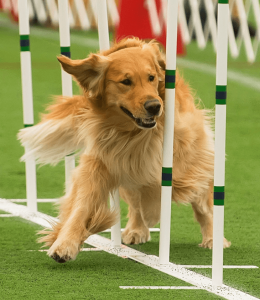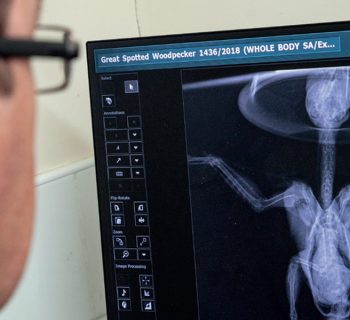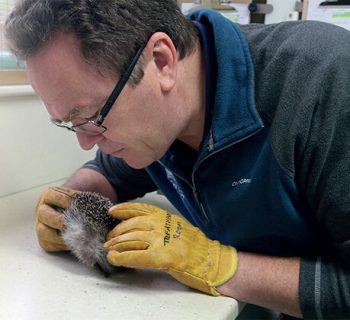This is an exciting time for canine and equine therapy. It has now been seven years since the fields of veterinary sports medicine and rehabilitation joined forces to become the newest specialty in veterinary practice. The field of veterinary rehabilitation continues to evolve, and the demand for education and training is growing around the world.
The Introduction to Canine Sports Medicine course will be held at the University of Surrey’s new school of Veterinary Medicine 2-4 September 2017.
 The programme will be facilitated by Dr. Janet Van Dyke - founder of the CRI, Dr. Chris Zink and Dr Constanza Gomez Alvarez DVM PhD MRCVS - Head of the University of Surrey’s Veterinary Biomechanics Laboratory. Dr Chris Zink is a recognised leader and educator in canine sports medicine and rehabilitation. She strongly believes that working with elite athletes, working dogs, and even active pets raises the bar for veterinary rehabilitation for all canine patients. If certain techniques and modalities deliver outstanding results in an athlete, why shouldn’t they be used for rehabilitating all patients?
The programme will be facilitated by Dr. Janet Van Dyke - founder of the CRI, Dr. Chris Zink and Dr Constanza Gomez Alvarez DVM PhD MRCVS - Head of the University of Surrey’s Veterinary Biomechanics Laboratory. Dr Chris Zink is a recognised leader and educator in canine sports medicine and rehabilitation. She strongly believes that working with elite athletes, working dogs, and even active pets raises the bar for veterinary rehabilitation for all canine patients. If certain techniques and modalities deliver outstanding results in an athlete, why shouldn’t they be used for rehabilitating all patients?
With that in mind, the Canine Rehabilitation Institute (CRI) has been at the forefront of providing advanced rehabilitation education for veterinarians, physiotherapists, and veterinary nurses since 2002. Dr Zink is a senior faculty member of CRI, and has presented courses on topics related to canine sports medicine and rehabilitation in the U.S., England, Switzerland, Finland, Germany, Australia and Brazil. This international outreach has provided an outstanding opportunity for open discussion and transmission of evidence-based knowledge between rehabilitation professionals worldwide.
For more information visit: Surrey Introduction to Canine Sports Medicine.
This CPD, only open to Vets and certified Physiotherapists, provides students with a fundamental understanding of structure and locomotion as they relate to performance, and an introduction to canine sporting events. Sports injuries in canine athletes are covered in depth including their causes, prevention and rehabilitation. The role that psychology can play in the rehabilitation of the canine athlete is also discussed.
Participants get hands-on experience with dogs on site.
TOPICS COVERED INCLUDE:
Canine sporting events: the organizations that oversee them and the breeds that participate
Anatomical structures and locomotion as they relate to canine performance
Gait assessment and retraining Lameness evaluation
Canine sports injuries: causes, prevention and targeted rehabilitation
Conditioning for the canine athlete Erogenic drugs (ethical and unethical)
Nutrition and supplements for the canine athlete
Canine sports psychology and how it can effect rehabilitation Delegates from this event will also be invited to see Dr Constanza Gomez Alvarez’s demonstration of the new Vet School’s Biomechanics Lab, visit the Vet School’s main facilities and take part in a tour of Fitzpatrick Referrals, Professor Noel Fitzpatrick’s well-known Orthopaedic and Neurological practice in Eashing, Surrey.

For more information, visit:
University of Surrey, introduction to canine medicine, e-mail j.gerhold@surrey.ac.uk or call 01483 689526






